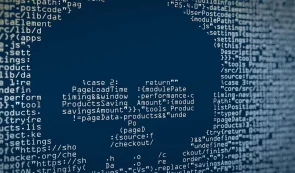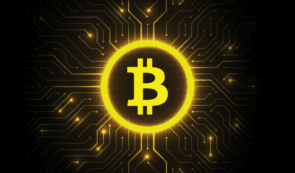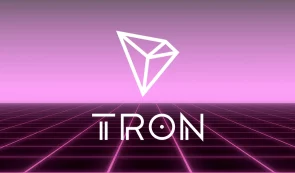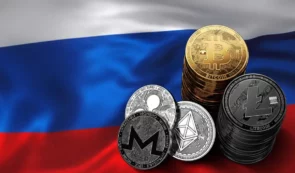OneCoin – The Pyramid Scheme That Shook the World

Cryptocurrencies are gaining more and more global popularity and mass adoption, but as we know there are two sides of the same coin. We are witnessing a surge of missuse of the new technology, disguised behind supposedly legitimate and proven exchanges and businesses.
Recently, there has been a rise in illegal crypto-related schemes. This is no exception for Bulgaria, where a pyramid scheme has emerged and blew up across the web – the project in question is non other that the infamous OneCoin. Police investigations, multiple arrests and searches lead up to one of the hottest topics and perhaps the biggest crypto scam in history.
Who is Ruzha Ignatova?
Ruzha Ignatova was born in Sofia, Bulgaria in 1980. At an early age, she went with her family to Germany, where she took her economics degree in Konstanz and defended her PhD in Law at Oxford.
She started her career as a consultant at McKinsey & Company, a global management consulting firm. Ruzha Ignatova is listed in the Commercial Register as a manager of at least 30 companies and is the sole owner of the capital of at least 5 companies.
It is alleged that Ruzha Ignatova is involved in several financial pyramid schemes. According to experts, OneCoin was founded with capital acquired from former financial pyramids such as Conligus, Univer Team, Unaico/ SiteTalk, OPN, Bonofa and BNG International.
Ruzha Ignatova and her father, Plamen Ignatov, owned a metallurgical plant in Bavaria until 2012, when it went bankrupt. Ignatova did not declare the plant bankrupt, for which she received a suspended sentence. The family is accused of stealing 1 million euros.
RELATED: Three Men Arrested for Alleged $720 Million Scam
The businesswoman enjoyed a lavish social life and many parties until the police raid. One of the bussineswoman’s “toys” was a 40-metre yacht worth 15 million euros.
What is OneCoin?
OneCoin is believed to have “stolen” billions of dollars from investors, making it one of the most infamous pyramid schemes related to crypto. According to the Bulgarian prosecutor’s office, OneCoin-related companies are also under investigation in England, Ireland, Italy, the US, Canada, Ukraine, Lithuania, Latvia, Estonia and many other countries.
But the biggest accusations are towards the multi-level marketing bonus scheme to attract new members. According to OneCoin, their main business model is to sell trading courses. Members can buy educational packages ranging from 100 to 118,000 euros.
OneCoin is supposedly mined from two websites in Bulgaria and one in Hong Kong. The companies claim they are not selling cryptocurrency, only educational materials. However, at a typical OneCoin member recruitment meeting, there is talk of investing in crypto, and the educational materials are barely mentioned.
Attracting new members brings bonuses for those upstream. All of this brings constant accusations that this is actually a Ponzi scheme, where some of the new recruits’ funds are used to pay the promised bonuses to old members. But this can only work as long as there are new takers, and the math shows that as the base of the pyramid expands geometrically, it soon reaches astronomical numbers exceeding the population of the planet.
At the time, the head of the prosecutor’s office, Ivan Geshev, said that Ignatova was indicted in Germany, but her name was not found on the Europol lists and the Bulgarian company claimed that no charges had been brought and no defendants had been charged.
After some time, Chinese police publicly charged 98 people tied to the scheme and managed to recover $260 million. According to Chinese media, the total amount achieved through the Ponzi scheme amounted to $2.3 billion. All companies linked to the company are under investigation.
READ MORE: QuadrigaCX Officially Labeled a Ponzi Scheme
According to prosecutors, OneCoin Ltd. is registered in the United Arab Emirates and operates through hundreds of related companies on 4 continents. According to the German financial institutions, the cryptocurrency serves as a means of payment that circumvents local legislation governing payment services.
Chronology
- May 3rd, 2018: the Central Bank of Samoa (CBS) bans all cross-border transactions related to OneCoin and OneLife.
- January 17th and 18th, 2018: Bulgarian police raid OneCoin’s office located in the center of Sofia, on Slaveykov Square, on the orders of a prosecutor from Bielefeld, Germany. The German police and Europol took part in the raid and the investigation. 14 other companies linked to OneCoin are being investigated and 50 witnesses have been questioned. Servers and other physical evidence have been seized.
- July 10th, 2017: Ruzha Ignatova has been accused by Indian authorities of misleading investors as part of an investigation.
- June 16th, 2017: the CEO of OneCoin claims that their cryptocurrency is licensed by the Vietnamese government, supposedly making it the first officially licensed crypto in Asia.
- June 20th, 2017: Vietnam’s Ministry of Planning and Investment (MPI) issued a statement saying that OneCoin’s claims of licensed trading were falsified, contravening MPI regulations. The person who allegedly signed the document did not have the required status.
- May 29th, 2017: the International Financial Services Commission of Belize (IFSC) warned OneLife Network Ltd. for conducting trading without a license or the required approval from the IFSC.
- April 23rd 2017: Indian police arrest 18 people in Navi Mumbai for organizing a member recruitment event for OneCoin. Police were undercover at the event to assess the situation before acting. After further investigation, it was revealed that the company had built a pyramid scheme.
- May 23rd, 2017: four people were summoned to court in Hunan, China, for their involvement in the scheme.
- In May, the investigation recovered $3.77 million from 9 bank accounts. The $11.52 million were transferred shortly before being seized. In early May, two others were arrested with $3.69 million in their accounts.
Many defrauded, few charged
In the end, the whereabouts of Ruzha Ignatova are unknown. The total amount stolen from the investors is unclear. Many unknown factors surround this case, and as of the end of 2018, no new evidence has come in. The magnitude of this case shook not only the crypto community, but the finnancial space as well. To this day, this is considered one of the biggest scams in the history of the ecosystem, leaving a million aggrieved investors in its wake.














